#mountholyokecollege
Text
“Home, Home Again,
I like to be here when I can...”*
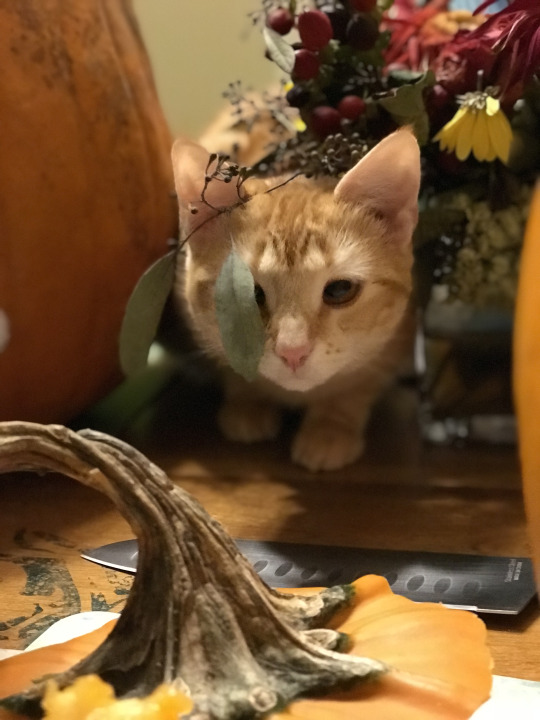
It's bittersweet to come home because I feel like a great adventure has come to an end. But perhaps it's not so. Perhaps a greater adventure is to live life with dignity, courage, and authenticity. Many issues expect me at home, from a personal level to total national chaos. There's much work to be done. After an uneventful flight, I land on JFK. The immigration officer peruses my passport and says, with a smile, "you're a world traveler!"
"Not exactly, not yet," I answer, humbled by the thought of my friend Anush, who really is a globetrotter.
Through the app Find Friends my son JeanLuc finds me waiting for my luggage. He has grown in my absence, his beard has thickened and he looks more mature overall. I hug him, smell his scent, listen to his heartbeat -- resting my cheek on the best place of the Puniverse, as I used to say when he was tiny. We meet my daughter Katrina in the car, and she's driving and that's good, because she's not into hugging. She does make an exception for birthday and Christmas, though, sweet thing that she is.
In the car, we share stories of the last two months, but not much, since I don't want to repeat everything I want to say when we're finally all together.
After three hours or so I'm home, seeing the rest of the family, which includes four new pets! It's when I hug my oldest son Marcelo, though, that I break down and start to cry because I'm so happy to be home and I've missed them all so much! Knowing his mother as he does, he has a surprise for me, which is a huge map on the wall, where we have fun placing color-coordinated thumbtacks on the places we've been.
During my time away I didn't allow myself to be homesick, because that would only take away from my experience abroad, but being around them all is like heaven -- or maybe heaven is just another word for home.
Key Takeaways:
1) An internship reveals as much about ourselves as the path we're contemplating taking. Sometimes a job is more glamorous from a distance than in the thick of it. Interning at the company of one's choice allows for an inside look at the day-to-day business. What did I learn at The Gioi? I learned that editing is hard, not only for me but for everyone. It takes work, and it's not always fun, but if making a messy paragraph shine appeals to you, then the time sitting and staring at a computer screen is worth it. However, -- and here's the takeaway -- now I know that I can do it. I can write and I can edit. Maybe that's not as surprising to anyone as it is to myself. I don't like to write all the time, and I don't like to edit always, but the work satisfies in me a deep need for connection and self-expression. I could say that I write to understand, and I edit to be understood. Or something like it.
Working at The Gioi showed me that the final product on a magazine shines because of hours of intense, laborious and boring work the staff is willing to put into a piece. Editing is work done both alone and in collaboration with a team. I worked alone at my desk, but I was just one of the many hands those texts passed through before becoming ready for print. Although separated, we had the same goal; make a text as good as possible.
2) The pros of living alone. I think everyone should live alone at least once in their lifetime. If not completely alone, with busy roommates. I did not live alone before getting married and starting a family of my own. I wish I had. By living alone you learn to become self-reliant. If you fail, you deal with the consequences, and the next day you do better. If you leave your bed unmade or a carton of milk outside the fridge, when you come home it's there, just the way you left it, or, in the case of milk, spoiled as a consequence of your negligence. No judgment from anyone, but no helping hand either, so it functions like a straight look in the mirror when we contemplate ourselves and all our shortcomings. Being so, living alone teaches humility, self-reliance, and confidence.

Another great thing about living alone is that you have a better chance of following your plans without being derailed. If you decide to sleep instead of reading or watch a movie instead of sleeping, that's up to you, and if you regret your choice the next day, that's also your problem, and you know you can't peg it on anyone around.
A subtler aspect of living alone is that you learn to manage your emotions, as there aren't people around to distract you from your feelings. Nobody makes you mad, for example, you get mad all by yourself, with thoughts you choose to have. That, I believe, is always the case, but when you're alone that becomes undeniably clear. You must rely on yourself as a source of wisdom, comfort, inspiration, entertainment and anything else you need.
3) Perspective. We have to leave sometimes. Leave a relationship, leave a house, leave a job, a country... in other to see it better. If by diving into something we take a closer look, by moving away from a situation, we see it in an entirely different angle. While in Southeast Asia, I didn't hear about Trump's latest tweets. It wasn't news, it just didn't matter for them what the POTUS said, did, or said he did or didn't do. It was so refreshing! I also learned that most people in that part of the world are not as scared of North Korea as they are of the United States. Well, considering our mutual history, can we really blame them? This same bird's-eye view I can apply to enlighten aspects of my personal life.
4) Traveling is an art, and, as with watercolor, writing or pottery, the more you practice the better you get at it. There are many kinds of travelers, and internship, work, or studying abroad have its own implications, but overall, leaving home reveals your identity as a traveler. What places are you attracted to, what do you want to see, what do you want to do? Do you travel to escape, to rest, or to learn? Do you find a cozy place and make yourself comfortable as you watch the natives from a peephole? Or do you mix with the locals, learn a new language and try new things?
I admire the latter, but I'm not an extrovert, so I don't throw myself into a new situation. I also don't hide from the wonderful opportunity to see new things, meet new people, eat different foods and do different things. Whenever I travel, though, I realize that I need to do so more often. Since traveling, by definition, is a state of transition, I want to learn to move more gracefully from one point on the planet to another. That's the art in it, the dance in the storm, so to speak. And as in every art, if you do just what you plan, what's the art in that? More important than following through some preconceived idea, is to be present in the moment.
5) So, there's the saying that "if you cut too many corners, you end up going in circles". Another reminder says that when you cut a corner, you end up with two more. In Brazil, we say that, by trying to avoid taking one step, we take two. That relates to my attempts at cutting costs. No matter how much one plans, when traveling there are always spur-of-the-moment decisions -- or there should be if you're living in the moment -- and cutting costs is an important practice if you're on a budget, but not every dime saved makes sense. Sometimes it's okay to take a cab, even when there are buses available. Sometimes it's okay to go to a restaurant, even when you can cook at home or get an inexpensive meal on the street.

6) Skin Shedding. Closely related to this new perspective, is the shedding of skin, the throwing out -- or letting go -- of what is no longer working for you. I got sunburnt in Phu Quoc Island, which led to probably the worst itch I ever had and later, to skin shedding. Although the process was far from pleasant, it symbolized a very special time in my life, when I'm letting go of much that I thought was part of my identity. I'm renewing myself. The process is both painful and beautiful. You cry for the skin to which you were once so attached which now brings you more discomfort than anything else. So you let it go. Then one day you look at your shoulder and see that the new skin is clear, healthy, and beautiful. You've been born again!
7) Completely different, but just as good. By the time you travel alone, be it for an internship, to study abroad or any other reason, you're probably over the age of eighteen and might have developed a philosophy of your own. But as you immerse yourself in another culture you realize that other people do things differently, sometimes exactly the opposite of what you think is right. That's a great opportunity to develop some humility. Yes, your philosophy is great, but mostly for yourself. If people in a different part of the world do things differently it's either because it's the only viable way in that environment or because it's working for them. And here's the takeaway: study different angles of your own idea. Learn, expand your views, enlarge thine soul.
8) Think Abundance. I have spoken extensively about it while talking about what I call scarcity mentality. This experience was a great way to immerse myself in a culture that prides itself on making do with less. It is a fact that in the United States there is too much waste, and better management of resources is something that we must learn, but sometimes that scarcity mentality can become a way of life, part of the culture and it stops making sense. To think abundantly is to understand that resources are always available, but if you go to the ocean with a spoon, that's how much water you'll get. Saving is good and must be encouraged, but shouldn't be the modus operandi. A better goal, in my opinion, is to do the best you can with what you have.
9) Order and Progress. It's pretty clear that basic organization leads to better planning and better execution. Traveling through Southeast Asia constantly reminded me of that. Some schools teach this but it must be reinforced by the culture, with social expectations and policies in public places. Brazil, for example, dwells in chaos. The culture deals with that aspect of its people, reinforcing it with cliches like "o jeitinho brasileiro", (the Brazilian way), which allows for creative loopholes in every sphere of society. Other cultures, such as the Japanese and Chinese, pride themselves in cleanliness and order. Good fruits come from such values. And that's what this trip reminded me to do; better observe organization in my own life.
10) I've always believed that people should leave their country of origin and live in another place for at least a year. This experience only reinforced that belief. I can't think of anything else -- except, maybe, parenting -- that changes one's perspective as much as immersing into another culture. Everything you know and take for granted, like the language spoken around you, the food, the currency, social values, all that changes but you, at first, remain the same. It's like taking a piece from one puzzle and mixing it up with pieces from another puzzle. At first, there's no place for that piece in that society and you feel extra and useless. Little by little you learn to assess your surroundings and learn new things. Learning happens when we modify ourselves. Without change, there is no learning. And this learning reshapes you, so soon you find that you do fit into that society. People count on your presence, on your input, and on your contribution. You don't stop being who you are, you just enlarge your worldview to accommodate new perspectives.
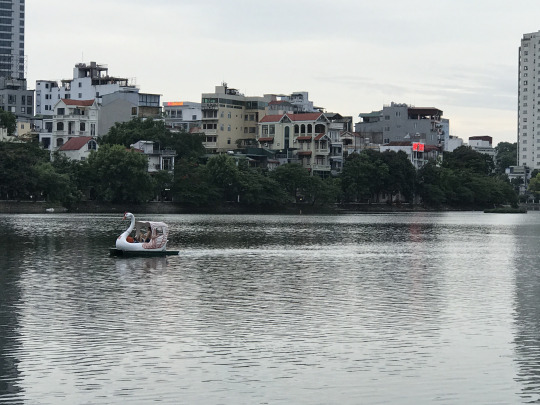
"It's all worth it if the soul is not small", wrote Portuguese poet Fernando Pessoa. However, the soul, like the body, needs food for growth. Traveling, reading, experiencing life in all its colors, shapes, and sounds, broaden our existence and deepen our understanding and therefore must be highly encouraged. I'm proud of Mount Holyoke College -- and immensely thankful -- for the college's efforts to provide students with experiences of this kind.
#mountholyokecollege#francesperkins#Summer internship#thegioi#Vietnam#southeastasia#china#traveling#writerslife#studentslife#Hanoi#cambodia#tailand#Laos#keytakeaway#pink floyd lyrics#springfieldma#Adventure#life experience#learning opportunities#busybeinghappy
1 note
·
View note
Photo
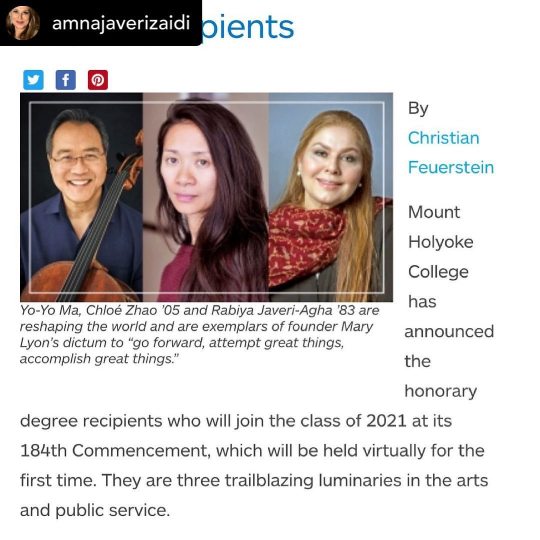
Posted @withregram • @amnajaverizaidi Congratulations my darling sister . I’m so proud of you and the amazing accomplishments you have achieved . I love ❤️ you . #mountholyokecollege #doctorateoflaw #classof21 #womensupportingwomen #womenempowerment #womeninpakistan #tapujaveri https://www.instagram.com/p/CPPje8WB0Kq/?utm_medium=tumblr
#mountholyokecollege#doctorateoflaw#classof21#womensupportingwomen#womenempowerment#womeninpakistan#tapujaveri
0 notes
Photo

I glanced down at my research this morning and knew that #MaryLyon was watching over me. 💙 💙 💙 #mtholyoke #mtholyokecollege #mountholyoke #mountholyokecollege #mountholyokealumnae #mtholyokeforevershallbe #research #researchvibes #hudson #madewithover #mhc #mhc1997 #1837 https://www.instagram.com/p/BtkBB88lAQX/?utm_source=ig_tumblr_share&igshid=1dqlmvqxmyp7j
#marylyon#mtholyoke#mtholyokecollege#mountholyoke#mountholyokecollege#mountholyokealumnae#mtholyokeforevershallbe#research#researchvibes#hudson#madewithover#mhc#mhc1997#1837
0 notes
Photo

We at the Centre for Citizenship, Enterprise and Governance welcome the University of @mountholyokecollege (USA) #intern entries, 4 of 21 joining us in 2020-21, working at our Institute of #IdeologyinCode launched on 7 December in #Dubai – Tianyang Gao, Jingyi Wu, Yuqi Zhang and Shanze Hasan #GoodisTrending
2 notes
·
View notes
Link
Anita Desai is one of the prolific and influential Indian English novelists & shortlisted to the Booker Prize three times and in 1978 won the Sahitya Akademi Award. Her novels depict the landscape, atmosphere and the society of India.
Her mixed parentage helped her learn multiple languages- Hindi, English, and German.
#globalindian #anitadesai #mussoorie #india #hindi #english #german #universityofdelhi #novels #shortstories #literature #career #genres #children #articles #interviews #landscape #atmosphere #societyofindia #mountholyokecollege #unitedstates #professor #humanities #mit #royalsocietyofliterature #girtoncollege #cambridgeuniversity #fictionwriters #englishnovelist #humanpsychology #personalitydistortion #journals #seminars #indianliterature #indianwriters #yaxis
0 notes
Photo

Link to the article: https://www.theodysseyonline.com/rejected-visa-mountholyokecollege P.S: It's a personal story.
0 notes
Text
Ten Things I Won’t Miss
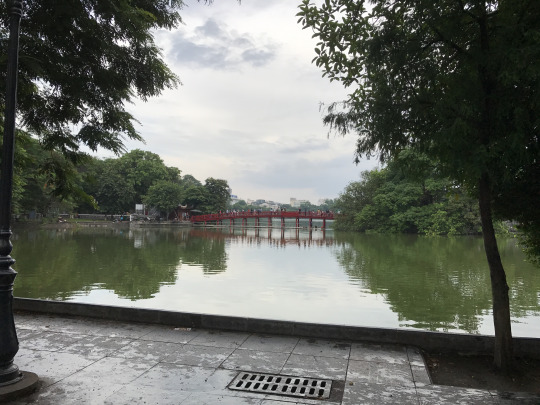
I take a walk around the Ho Hoan Kiem for the last time. It's been less than two months since I first set foot in Hanoi, and now I'm filled with nostalgia for the first days of my arrival when everything was a novelty. I've grown accustomed to the language, to street vendors, tourists, to scooters swerving around me, crowded streets and little shops. I can see why Lady came and stayed. It's easy to stay here. I shop for a few souvenirs then head to my favorite cafe in Hanoi; the Tous Les Jours! I take a seat on the second floor, open my laptop and work while having one of their delicious pineapple bread. The cafe has wi-fi and soothing golden lighting, while outside the window the blue sky gets darker with each passing minute. The soft music is perfect and the staff is super friendly. Today there are few customers besides me, and I appreciate that too. My only problem with the place, as well as most cafes in Southeast Asia, is that tea and coffee are served in such tiny cups. In South America is the same thing; you ask for a cup of coffee and get a little sample. They're rather proud of their coffee beans, but never want you to be satiated. Instead, they dispense it like medication. I miss the States' big mugs and free refills!
I'm at the end of my summer internship, and I've loved being here. However, there are a few things in Vietnam I will not miss. Let's make a quick list, shall we?
1) Probably the number one thing that really gets to me is the habit the Vietnamese have of clearing their throats and spitting on the ground. This happens everywhere. You're walking around the beautiful Ho Hoan Kiem lake, having the best thoughts conceivable to men, then you hear someone right beside you making a deep sweep in their throat and spitting its phlegmatic contents right on the path. Gosh! I do avert my eyes, my ears, and all my senses as I find the habit deeply repulsive, but this seems perfectly normal and acceptable in the Vietnamese culture. I want to ask them if you have to do that, can you at least spit in the nearest trash can?
Close related to that is their habit of picking their noses. It's not that people all around the world doesn't do it, but there's a time and place for everything, which is a concept that evades the average Vietnamese. Also, consider dropping the habit altogether and using a tissue instead.
2) Poor sanitation. This is both a personal issue and a major social one. I believe many people wouldn't want to visit Southeast Asia because they don't do well with a hole in the ground instead of a toilet bowl. So, yes, my travels would have been much more pleasant if I could count on proper sanitation, but I also believe that these countries could get a major boost in tourism, and consequently in the economy if they just made sure that public restrooms were properly equipped and clean.
3) Cutting in line. This only happens when you're in line, so, it's not a constant pebble in my shoe, but when it does occur, it's unbelievably annoying. How can anyone think that this is okay? How do they feel when someone cuts in line in front of them? I have talked to Vietnamese people about that and they laugh like it's a Vietnamese cute quirk. It's not cute! A quirk shouldn't interfere with everyone else's schedule. It's not that Vietnamese people are arrogant, because generally, they are not. It's just that they don't put that much stock in this kind of social organization. On this matter, China is quite different. Even by visiting the Chinese embassy in Hanoi one notices that cutting in line is a major no-no. Chinese people can be very rigid on a lot of things, not always sensibly, but in queueing they can teach Vietnam a thing or two.
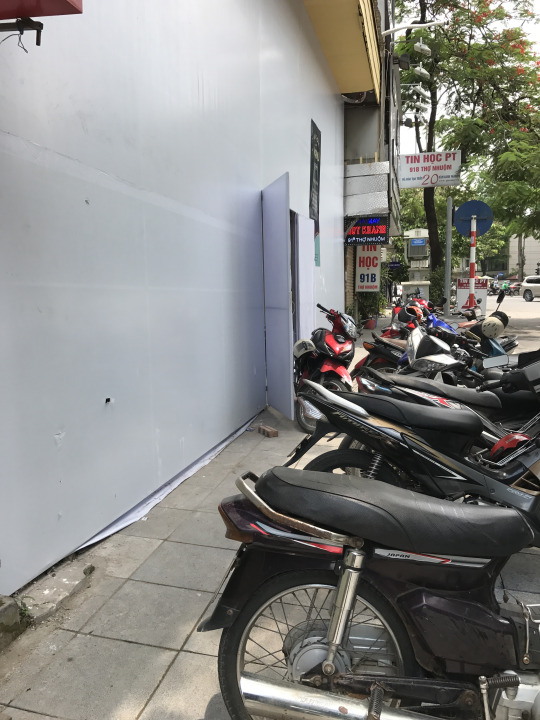
4) No sidewalk to speak of. Well, yes, there are sidewalks, but they're not for walking. They're used primarily as parking spaces for scooters. If there aren't parked scooters, or if there's extra space, then people may walk. But most likely, it's been already taken by tables and people cooking, eating, playing checkers, or fixing appliances. If you're walking on the sidewalk at rush hour, remember that the sidewalk is free game, and you'll most often see a motorcycle rushing at or behind you. The fun never stops.
5) Smoking. This is something that surprised me. I thought that smoking was in decline all around the world, but apparently, that's not the case in Vietnam -- especially among young people. The Vietnamese young men and women seem unmoved by the disturbing ads on cigarette packages. Everywhere you go, there are people puffing away. What I find ironic is that most people use a mask on the streets to prevent contamination by air pollution but see no problem in lighting a cigarette.
6) Trash. Sometimes I think of Vietnam as a person with low self-esteem, who just doesn't realize his potential and how precious he is. That would explain why they don't care much about some of their beautiful beaches and parks. That's not generalized, and Hanoi has many places well cared for, but in a beautiful beach in Phu Quoc, for example, there was plenty of trash, so that you had to watch where you stepped. The rule of thumb seems to be that, unless a place is considered sacred, like a pagoda, or classified by UNESCO as a World Heritage Site, it doesn't require maintenance. Therefore, if you visit the Temple of Literature, for example, you'll find it clean and well maintained, but if you take a walk around a small park or lake, it might be littered with empty bottles, food wraps, and dog feces.
7) Toothpicking. After a meal, most people in Vietnam reach for the toothpick -- which is conveniently placed on the table -- to do some teeth cleaning. Okay, this is a personal peeve of mine. As a teenager, I worked as a dental assistant and that was something my boss hammered in his clients' minds; don't use toothpicks on your teeth, it does more harm than good. The Carefree Dental site has the following to say about the habit: "...if you're not careful, you could be damaging your tooth enamel, lacerating gum tissue, and even causing a broken tooth... Additionally, aggressive toothpick use could damage the roots of the teeth, especially where the gums have pulled away from the teeth leaving root surfaces exposed. A broken splinter could also lodge itself in the gum, resulting in an infection if not removed." I understand the drive to get food from between your teeth after a meal, but there are other ways, more effective, to do that, like flossing. I also don't like the fact that this is done at the table, but that might just be me. I'm one of those people who believe that a restroom is a perfect place to put yourself back to rights. Especially if that restroom is well lit, has all the appliances and is clean. #see sanitation above.
Vietnamese people are notorious for bad teeth and oral hygiene, and I believe that toothpicking is only one more bad habit in a multifaceted issue.
https://www.carefreedental.com/resources/16-dental-tips/153-10-bad-habits-that-are-hard-on-your-teeth
8) Unwelcome solicitation. Vietnamese people are very helpful and most of the time their help is quite welcome. However, it can get annoying when you can't take a ten-minute walk without being offered at least five things. It's fruits, hats, juices, food and, of course, rides. There's a man leaning on a motorcycle at almost every corner, and every one of them asks if you want a ride. That's also the case in Cambodia, Thailand, and Laos. It's nice to have rides easily available, but it becomes a pain when you can't go twenty steps without having to decline something. There are also those who follow you for a little while, insisting.
If you do accept whatever they're selling, be ready to haggle. Sometimes haggling is fun, especially if you're doing it for exercise and are not very interested in the product. But in that case, I'd rather spend my time in more interesting conversations. When making purchases, I like straight-forward transactions. I prefer fixed prices and being able to count on finding the same product at the same price day after day.
9) Scarcity mentality. The scarcity mentality is the idea that there's never enough to go around. I use the word never instead of not, because the scarcity mentality subscribes to a sort of pessimism. It's not that there isn't enough for today, but a constant belief that tomorrow there won't be enough either. Some people with this mindset are very selfish, believing that resources cannot be shared since more for you means less for me. I'd not say that the Vietnamese is selfish, much on the contrary. The people I met in Vietnam were very considerate and extremely generous, especially my supervisors and colleagues at The Gioi. However, the notion of poverty is very present in the Vietnamese society's words and actions. This is hard to explain, so I'll give a few examples: the tiny teacup at homes and cafes, as I've mentioned before, the scant toilet paper, narrow streets, tiny bathrooms, little water in the shower, bath towel about the size of an American hand towel, recycled water for many needs like washing dishes, flushing, etc. Anyone who knows me knows that I dislike waste and truly believe we should use our resources more effectively. My problem is with the mentality itself, with the belief that we don't have enough, the posture that everything is scarce today and tomorrow will be worse. While I can't speak much about the economy in Vietnam, I do notice that people have money to eat out, to buy cigarettes, to go to the movies, and to travel. And yet, that cultural restriction is often present, as though the resources are meager and must be carefully divided.
I have often compared Vietnam with Brazil, and on this too the similarity is astonishing. I was away from Brazil for twenty-four years, and at my return, I was surprised by the size of things like soap bars, peanut butter jars, mayonnaise, jam, tomato sauce, shampoo bottles, and of course, teacups! Do people eat or use less of a product because it's in a smaller package? Or do we use or eat as much as we need, independent of the container? Like Vietnam, Brazil also keeps and encourages a scarcity mentality. In a culture with this mindset, goods are distributed as though from a parent to a child -- this is all you can have, Junior, so make sure it lasts, -- while in places with an abundance mentality, goods are spread freely, even if they are meager, with the trust that people will responsibly take what they need and nothing more. In this case, people are treated like responsible adults and not like children who can't be trusted.
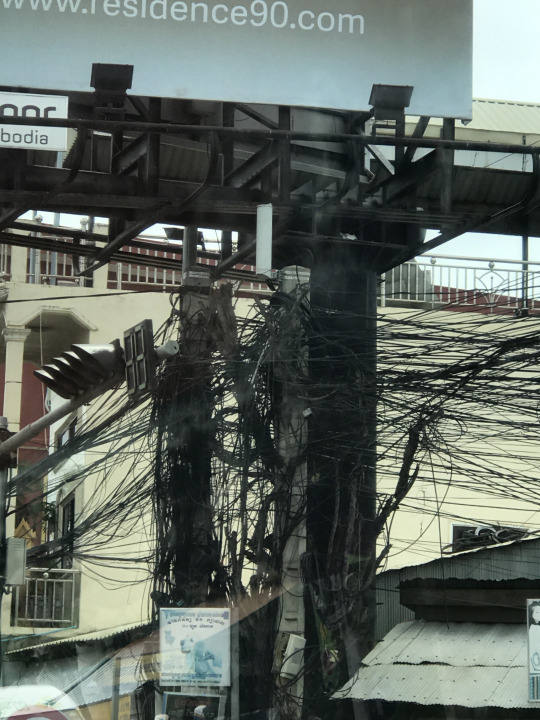
10) Order and Progress. It could be the slogan on a flag, right? Oh, wait! It is! It's the slogan on the Brazilian flag. And it doesn't work very well over there. But, disappointment notwithstanding, it's a good slogan. No. It's a great slogan because you really can't have progress without order. I'm sure if one day Brazil succeeds in attaining the first part of the slogan, the country will have no problem with the second. Order, or organization, allows us to take a full assessment of our surroundings. It's by organizing that we know the resources we have and can plan around what we don't have. While traveling in Southeast Asia I noticed that the absence of some basic structures -- sanitation, for example -- is not the result of lack of resources. Everything necessary for an efficient and pleasant rest stop, for instance, is already there. The electrical wires in Phnom Penh is an example of that; apparently, the Cambodian capital expanded quickly and there was an immediate need for more and better electrical wires. Instead of organizing and extending the existing cables, they haphazardly added more as demand increased so that now it's a tangle of wires which defy logic. I can only imagine how electricians deal with that mess.
So, why can't it be organized? I don't know. Perhaps they have been dealing with bigger emergencies, putting out fires for too long, or maybe order is just not a high priority in the Vietnamese culture. However, there are places where much thought and planning have been applied, like the Train Tien Plaza in Hanoi, a shopping center with all the organization and sophistication one can expect. The airport, some hotels, stores and upscale restaurants show a stark difference to the facilities for the public, which have yet to benefit from the same kind of organization.
#mountholyokecollege#Summer internship#Hanoi#vietnamese#southeastasia#studentslife#writer's life#traveling#travelblog#toothpicking#scarcitymentality#queueing#nose picking#francesperkins
1 note
·
View note